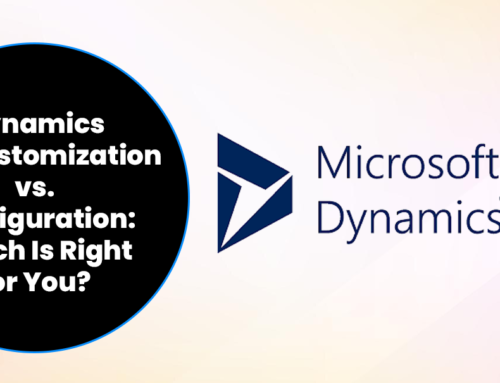
An implementation project manager plays a critical role in the life cycle of an ERP project, from start to finish. Many business leaders think, “Well, we already have a project manager. Certainly, there is no need for an implementation project manager too, right?”
Well, not exactly. An implementation project manager can bring tremendous benefits to companies both large and small, regardless of the nature of the project. Here’s how.
What Does an Implementation Project Manager Do?
Implementation project managers work in tandem with the primary project manager, developing processes and workflows as they strive to rollout new IT solutions. These may include:
- New enterprise software platforms;
- New operating systems;
- New hardware and equipment systems; and
- Other technology in the workplace.
Unlike the project manager, who focuses on the entire project, the implementation project manager maintains a far more narrow focus surrounding preparations to implement and deploy new technology. This not only brings about a smoother implementation and rollout, but it also frees the primary project manager to focus on other tasks.
This individual will be involved in project planning for the implementation and deployment phases. They will also work to identify and allocate resources on the project, in addition to developing and launching a communication plan to ensure everyone is kept up-to-date, performing risk analysis and related consulting, and guiding everyone through the implementation steps.
The implementation project manager also works with other tech team members in an effort to streamline the processes leading up to and following the deployment of new technology.
This role also involves working with the company’s non-technical staff in the time during and after implementation, collecting information about how they use the technology in question, and providing support during a time of transition. This is critical for a smooth implementation, whether you are introducing a new enterprise software system or overhauling your data management systems.
Considerations When Hiring an Implementation Project Manager
An implementation project manager can make a tremendous difference to your project, especially when dealing with larger, more complex projects such as enterprise resource planning (ERP) software implementation projects. There are a few points to think over as you consider this sort of hire.
- Do you have a sufficient number of projects to support a hire long-term? An ERP implementation — and the work leading up to rollout — can be extremely complex, leading to months of work. But eventually, the project will come to an end. If you do not have additional projects in the pipeline, you will have a project manager with nothing to do. Carefully consider what projects are coming down the pike. In some cases, an organization may have a sufficient workload to support a permanent long-term hire. Others may have just one project on deck and in that case, the organization may find a better fit with an independent contractor or another short-term staffing solution.
- Are you at a point in your project life cycle where it makes sense to hire an implementation project manager? The ideal time to hire for this position is generally before you start the project, as this will allow you to get the maximum benefit. Sometimes, hiring mid-stream can be more disruptive than it is helpful. In other cases, you may need an implementation project manager to help get a project back on track. And, of course, there are considerations for the future — will you have projects down the road for them to oversee?
- Do you understand the difference between an implementation project manager and a project manager? When hiring for this position, it’s important that you have a good idea of how these roles differ and how these two individuals will work together to bring about an optimal result for your organization’s projects. You can think of the project manager as the individual who spearheads the project, strategizing and leading on the more general aspects, while the implementation project manager has a more narrow focus of coordinating the moving parts. This leads us to our next consideration: understanding what skills to look for in a candidate.
- Do you know what skills to look for in an implementation project manager? You want an implementation project manager to be a detail-oriented people person who can work with your staff in a way that educates while also alleviating any anxieties or concerns that may arise before, during or after implementation. These anxieties are especially common for major transitions, such as the implementation of a new ERP software platform. In this scenario, you have multiple software systems that are being replaced by a single, centralized platform. This impacts multiple divisions within the company and it can represent a full overhaul of the process flows that exist within an organization. Needless to say, this can be very stressful and you want to be sure your tech talent provides the necessary support during the transition. This is one position that demands a “people person.”
Your implementation project manager should also have good problem-solving and analytical skills that allow them to identify issues and come up with effective solutions that bring maximum benefit. No implementation and rollout goes on without a hitch, especially when you are dealing with large ERP software platforms that require an implementation timeframe of many months. These analytical skills are also useful in identifying opportunities for growth and improvement with new software systems and technology. In fact, this is one area where an implementation project manager can continue to bring value to an organization, even if there is no project in the pipeline. Analytical skills are also essential for identifying potential problems, such as compliance and risk management issues, compatibility problems or inefficient process flows that will interfere with productivity.
Implementing a new enterprise software platform such as an ERP system is complex and time-consuming, with the potential for lots of disruption and lost productivity. But having the right team working on your side will go a long way toward minimizing risk and promoting a positive outcome with a strong ROI.
Hiring an implementation project manager is a good move for most organizations. The primary variable is whether you have sufficient workload to support this position into the future, but this concern is one that can be addressed during the hiring process. A company that is uncertain about their future needs may opt for staffing solutions that are more temporary in nature, such as an independent contractor.
At Cox-Little, we know the complexity of an ERP implementation project. We have a seasoned team of ERP recruiters who can help you hire ERP professionals to lead your project to the finish line with minimal stress and maximum ROI. Contact the team at Cox-Little today to discuss your project and goals for the future.






Leave A Comment